Hundreds of people have been killed and hospitals are overwhelmed after a 7.2-magnitude earthquake destroyed towns in Haiti.
Authorities said at least 1,800 are injured after people fled their homes fearing they might collapse, as churches, hotels and other buildings were reduced to rubble on Saturday.
Haiti's civil protection agency said rescue workers and bystanders were able to pull many people to safety from the rubble after the quake.
Officials say 304 people have been killed and hundreds are unaccounted for.
The National Hurricane Centre has forecast that Tropical Storm Grace will reach Haiti late on Monday night or early Tuesday morning.
The quake struck 8km (five miles) from the town of Petit Trou de Nippes, about 150km (93 miles) west of the capital Port-au-Prince, at a depth of 10km, the US Geological Survey (USGS) said.
Prime Minister Ariel Henry said he was sending aid to areas where towns had been destroyed and hospitals were overwhelmed with incoming patients.
Mr Henry also declared a one-month state of emergency for the whole country and said he would not ask for international help until the extent of the damage is known.
He said some towns were almost completely razed and the government had people in the coastal town of Les Cayes to help plan and coordinate the response.
Mr Henry said: "The most important thing is to recover as many survivors as possible under the rubble.
"We have learned that the local hospitals, in particular that of Les Cayes, are overwhelmed with wounded, fractured people."
He added the International Red Cross and hospitals in unaffected areas were helping to care for the injured, and appealed to Haitians for unity.
"The needs are enormous. We must take care of the injured and fractured, but also provide food, aid, temporary shelter and psychological support."
Later, as he boarded a plane bound for Les Cayes, Mr Henry said he wanted "structured solidarity" to ensure the response was co-ordinated to avoid the confusion that followed the devastating 2010 earthquake, when aid was slow to reach residents after as many as 300,000 were killed.
Gabriel Fortune, a long-time politician and former mayor of Les Cayes, was among those killed in the earthquake.
He died along with several others when his hotel, Le Manguier, collapsed, the Haitian newspaper Le Nouvelliste reported.
Philippe Boutin, 37, who lives in Puerto Rico but visits his family annually in Les Cayes, said his mother was saying morning prayers when the shaking began, but was able to leave the house.
The earthquake, he said, coincided with the festivities to celebrate the town's patron saint, adding that the hotel was probably full and the small town had more people than usual.
He said: "We still don't know how many people are under the rubble."
Humanitarian workers said information about deaths and damage was slow coming to Port-au-Prince because of intermittent internet.
Also complicating relief efforts was gang activity in the seaside district of Martissant, just west of the Haitian capital.
"Nobody can travel through the area," Ndiaga Seck, a Unicef spokesman in Port-au-Prince, said by phone. "We can only fly over or take another route."
The reports of overwhelmed hospitals come as Haiti struggles with the pandemic and a lack of resources to deal with it.
Just last month, the country of 11 million people received its first batch of US-donated coronavirus vaccines, via a United Nations programme for low-income countries.
Videos posted to social media showed collapsed buildings near the epicentre and people running into the streets.
People in Port-au-Prince felt the tremor and many rushed into the streets in fear, although there did not appear to be damage there.
Naomi Verneus, a 34-year-old resident of Port-au-Prince, said she was jolted awake by the earthquake and that her bed was shaking.
She said: "I woke up and didn't have time to put my shoes on. We lived the 2010 earthquake and all I could do was run. I later remembered my two kids and my mother were still inside. My neighbour went in and told them to get out. We ran to the street."
Paul Caruso, a geophysicist with the USGS, said aftershocks are likely to continue for weeks or months - and one had a magnitude of 5.9.
The impoverished country, where many live in tenuous circumstances, is vulnerable to earthquakes and hurricanes.
It was struck by a 5.9-magnitude earthquake in 2018 that killed more than a dozen people, and a vastly larger 7.1-magnitude quake that damaged much of the capital in 2010 and killed an estimated 300,000 people.
The earthquake struck more than a month after president Jovenel Moise was killed, sending the country into political chaos.
His widow, Martine Moise, posted a message on Twitter calling for unity among Haitians: "Let's put our shoulders together to bring solidarity. It is this connection that makes us strong and resilient. Courage. I am always by your side."
Humanitarian aid groups said the earthquake would only worsen the nation's suffering.
https://news.google.com/__i/rss/rd/articles/CBMiiQFodHRwczovL25ld3Muc2t5LmNvbS9zdG9yeS9oYWl0aS1lYXJ0aHF1YWtlLXRvd25zLWRlc3Ryb3llZC1hbmQtaG9zcGl0YWxzLW92ZXJ3aGVsbWVkLXdpdGgtaHVuZHJlZHMta2lsbGVkLWFuZC10aG91c2FuZHMtaW5qdXJlZC0xMjM4MjAxONIBjQFodHRwczovL25ld3Muc2t5LmNvbS9zdG9yeS9hbXAvaGFpdGktZWFydGhxdWFrZS10b3ducy1kZXN0cm95ZWQtYW5kLWhvc3BpdGFscy1vdmVyd2hlbG1lZC13aXRoLWh1bmRyZWRzLWtpbGxlZC1hbmQtdGhvdXNhbmRzLWluanVyZWQtMTIzODIwMTg?oc=5
2021-08-15 03:47:08Z
52781800901241
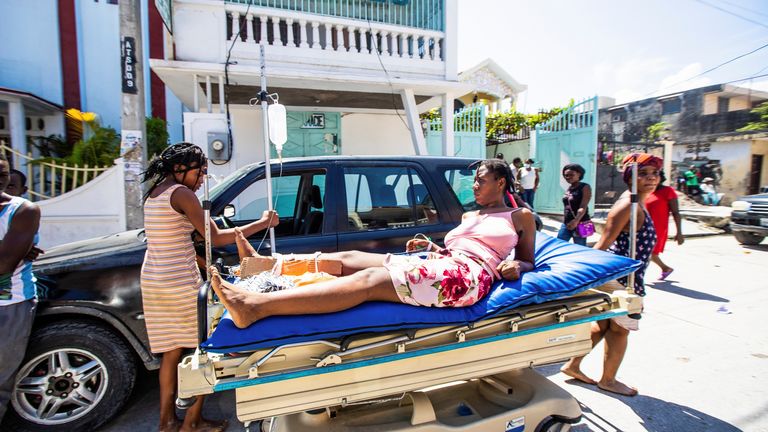
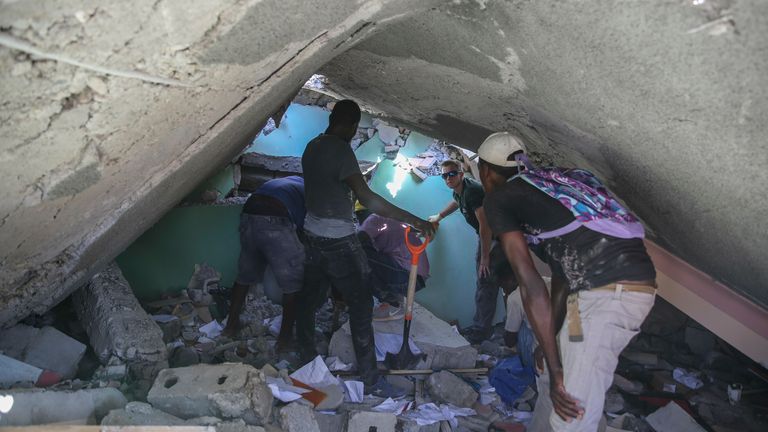
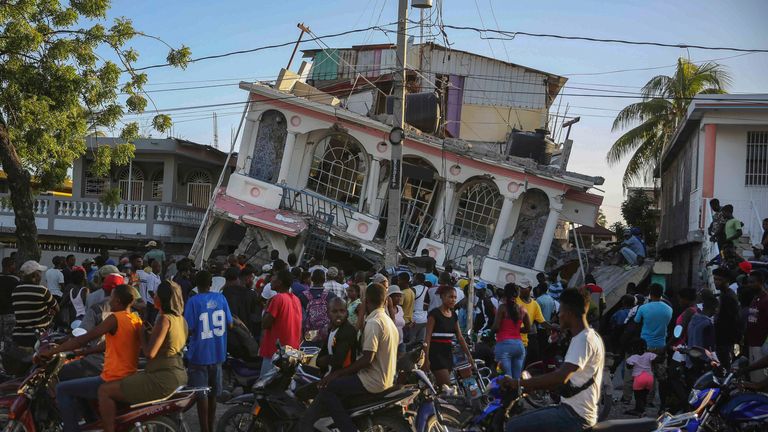
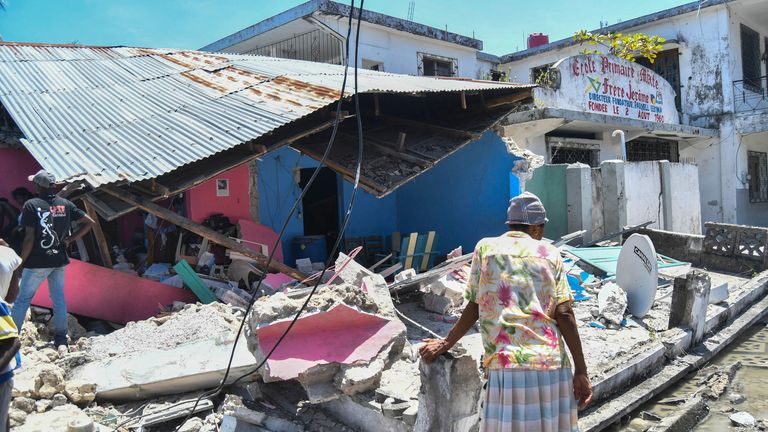
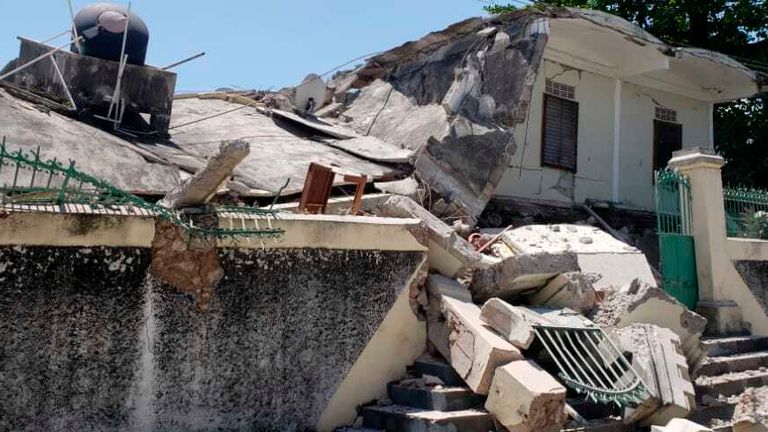
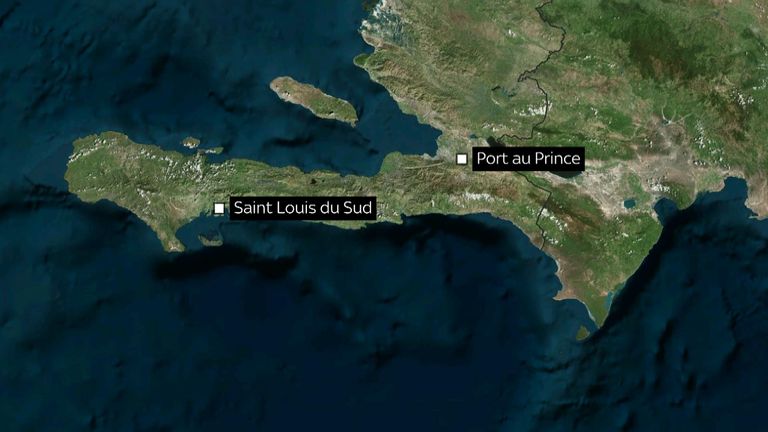
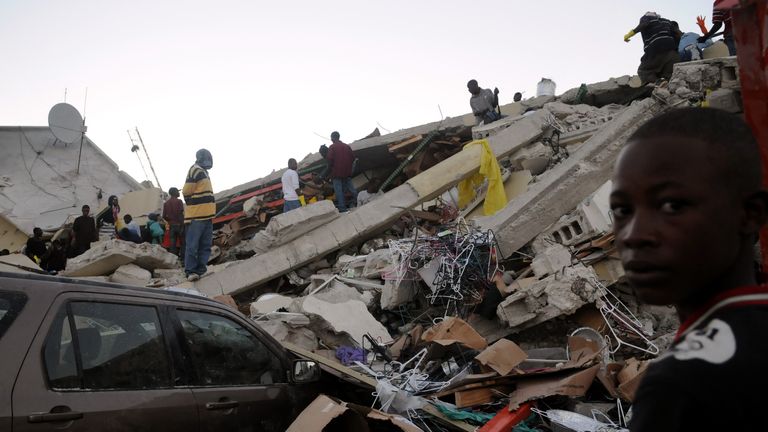
Tidak ada komentar:
Posting Komentar